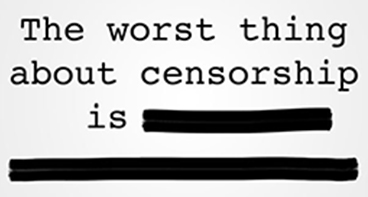
Professor Wadan Narsey
SUVA (The Fiji Times/Pacific Media Watch): OPINION: Every military coup in Fiji has removed the Parliament through which people's elected representatives could publicly raise legitimate concerns.
The worst period was the seven years between December 2006 and September 2014, when no Auditor-General reports were released to the public because they allegedly had to be "tabled in Parliament first".
The situation was made worse by media censorship.
However one very fruitful avenue is often ignored, the Letters to the Editor columns of the newspapers and magazines allow anyone to publicise any issues they desire.
The Fiji Times, for instance, prints dozens of letters on weekends which cover a huge variety of topics.
Members of the public are now quite used to some names; Allen Lockington, Rajend Naidu, Praneet Singh, Sukha Singh, Floyd Robinson, Nardeo Mishra, Lawrence Narayan, Kirti Patel, and even Frank Eggers from Albuquerque in the US all writing on their pet topics.
The Fiji Times strengthens democracy by allowing ordinary citizens to openly and responsibly publicise their concerns, often concerning public policy and taxpayer funds.
'People's parliaments'
Effectively, the Letters to the Editor columns are "people's parliaments", publicly recording the issues for all to see, just as Hansard does the same for parliamentary proceedings.
The Fiji Times, to its great credit, also promptly posts these letters online, instantly giving national and global exposure.
The readers can also see if those wielding authority, such as government ministers or university vice-chancellors, respond or do not respond to these publicly aired concerns and questions, easily demonstrating the extent of their accountability to the public whose funds they control.
But for this democratic mechanism to exist and be effective, the media must publish all legitimate letters without any censorship. Unfortunately, some letters are not published for various reasons.
The impact of any censorship of letters is worse if it comes on top of censorship of opinion articles.
In one of my complaints to the chairman of the Media Industry Development Authority (MIDA), Ashwin Raj, I had pointed out the great decline in the numbers of my articles published by the newspapers following the promulgation of the 2010 Media Decree.
MIDA complaints
In 1990-1999, 56 articles were published, in the years 2000-2009 there were 94, from 2010-2011 the number was 11 and from 2012 to March 2014, none were published.
I also complained to MIDA that even some of my letters to the editor were not being published, despite their public policy content.
The MIDA chairman gave a public assurance on the 2014 World Press Freedom Day that newspaper editors must explain to him and publicly, their editorial policies on Letters to the Editor.
But he soon changed tack and informed the newspaper editors they were perfectly free to publish or not publish, and with mind-blowing logic, asserted: "Any interference by MIDA in this process would ordinarily be deemed as an assault on the independence of the media by Wadan Narsey among others. The matter is now closed."
This matter will remain "closed by fiat" unless the public demands greater accountability from the newspapers and MIDA, and push the lawful boundaries with Letters to the Editor.
(From April 2014, The Fiji Times itself requested cautious public policy articles from me in the run-up to the national elections, and some have continued since then.)
Citizens' personal responsibility
It is understandable that under a military dictatorship, citizens can be discouraged from voicing criticisms of government policy, or asking awkward questions of ministers and civil servants.
Even the Auditor-General's reports were not released for seven years and the Public Accounts Committee will have great difficulty in addressing the revealed cases of the past misuse and abuse of funds, as the ministers and civil servants concerned may have "moved on".
The public must bear some responsibility for this sorry state of affairs as they abjectly failed to publicly protest even in the media available to them such as through the Letters to the Editor.
Of course, with Parliament now in place, the public can expect their issues to be raised by their elected representatives, in both the Opposition and Government.
It is, however, the moral responsibility of knowledgeable citizens to educate the public on the emerging issues through the Letters to the Editor columns, so that pressure may be applied on parliamentarians.
Unfortunately, the current content of most Letters to the Editor indicate public minds are more occupied by sports trivia than the far more serious governance issues that are undermining our society.
The bottom line is that if the ordinary people do not raise their voices through the media channels that are available to them, then they will get the society they deserve.
What issues can be raised?
I give below the broad subject contents of my own Letters to the Editor over the past two years:
* MIDA, Media freedom and censorship - 5
* 2014 Election and electoral system - 11
* Economy and public policy - 8
* Governance and accountability - 19
* Education - 10
* Environment - 2
* Social - 2
* Total: 57
These letters are all on my website "NarseyOnFiji", and the sprinkling of labels "not published" give a good perspective on the nature of media censorship in existence then.
My website also shows how a website management system such as Wordpress, allows anyone to freely publicise their views within Fiji and globally, despite any media censorship.
Journalism students could write major theses analysing the content of Letters to the Editor columns of our two daily newspapers, over the past 10 years.
"NarseyOnFiji"
This work is licensed under a Creative Commons Attribution-NonCommercial 3.0 New Zealand Licence.




